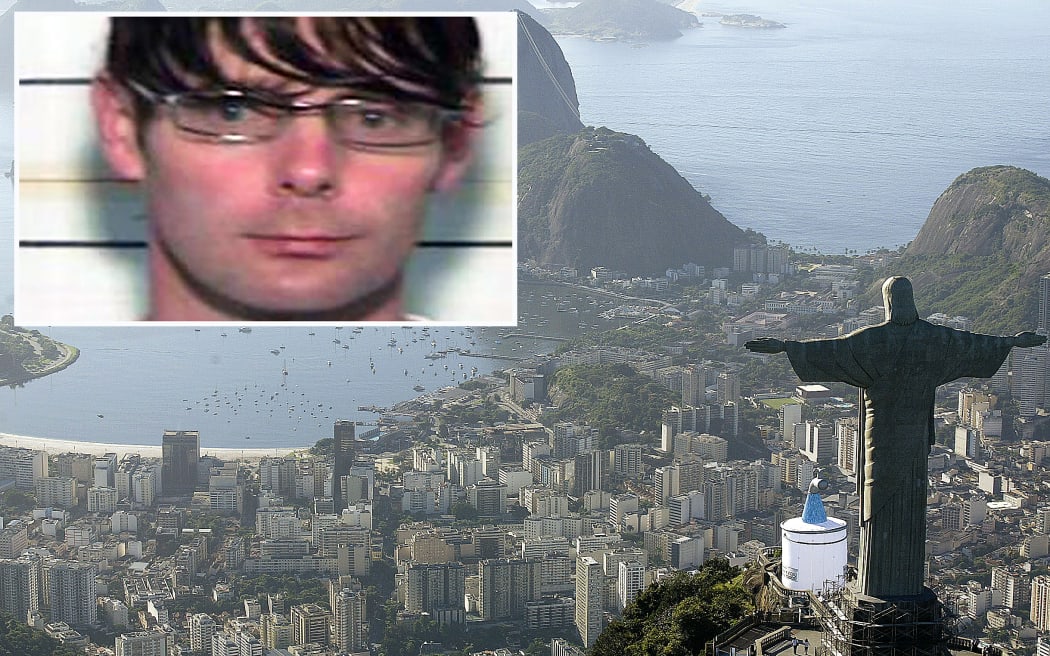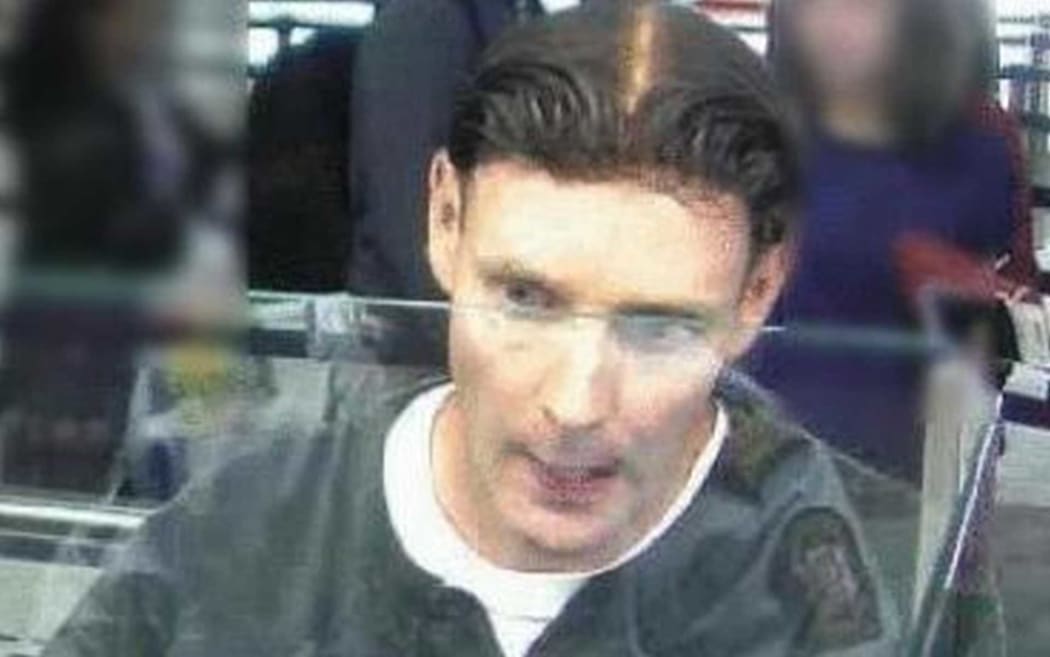Police investigating fugitive killer Phillip Smith's escape from jail and New Zealand have searched a house in Palmerston North and a safety deposit box in Auckland, they say.

Photo: RNZ
Smith has been on the run for about six days after fleeing New Zealand while on temporary release from prison, where he was serving time for murder and sexual assault. He used a passport issued in his birth name of Phillip Traynor to get on a flight to Chile, from where he went to Brazil.
A police spokesperson said police had spoken to a number of people who had interacted with Smith in the past few months and were building a clearer picture of the events which lead to his abscondment, as well as his state of mind.
"A search warrant has been executed on a Palmerston North address where a number of items were taken away for examination," the spokesperson said.
"A search warrant was also executed on a safety deposit box in Auckland."
Police were also looking at banking and business records, they said.
A Department of Corrections spokesperson said Smith was no longer the shareholder of a company he was running from prison. It became aware Smith was a director of an import-export company while he was in jail in 2011.
Changes were made to the Corrections Act to tighten controls around self-employment while in prison, which came into effect in June last year, and prisoners must now declare any self-employment activities. Those activities also had to be approved by a prison manager.
Smith stopped working for the company after the changes were made, the spokesperson said. He remained a shareholder but the company was struck off the Companies Register in November 2013.
Prime Minister John Key, who is in China meeting APEC leaders, said he had confidence in the department.
NZ police in Rio
New Zealand Police liaison officer Detective Superintendent Mike Pannett has arrived in Rio de Janeiro where he will begin co-ordinating with Brazilian authorities and act as liaison with the inquiry team.
Matt Sandy, who is a journalist in Rio de Janeiro, said Smith's arrest depended on the extradition agreements in place between Brazil and New Zealand. However, he told Checkpoint he was confident the Brazilian police would find and arrest Smith.
Mr Sandy said the police there would be motivated to find him but that it could be more than a year before Smith could be rearrested.
"One of the reasons for that delay is that there actually needs to be sort of a diplomatic negotiation over the extradition treaty that exists, or a bi-lateral agreement to support the extradition," he said.
"Often there isn't sufficient law in place to support that extradition immediately. Given New Zealand doesn't have an extradition treaty with Brazil, there would need to be all that diplomatic wrangling first before he was arrested."

CCTV footage of Phillip Smith as he passed through Auckland Airport. Photo: NZ Police
Meanwhile, Canterbury Law School dean Chris Gallavin warned the media not to become a pawn in one of Smith's mind games.
Smith said in an exclusive interview with Radio New Zealand News he was fleeing what he called a vigilante justice system.
He said he planned to issue a media statement outlining his reasons for escaping.
But Dr Gallavin said the media needed to be careful not to feed what he called Smith's narcissistic power trip when he released the statement.
"To give him a platform by which he can then espouse whatever his opinions are, which is obviously going to cause a great deal of stress to the victims, is something that I strongly suggest the New Zealand media ought not to perpetuate," he said.
The media needed to be able to tell the difference between genuine public interest and public voyeurism, Dr Gallavin said.
That sentiment was echoed by Victoria University psychology professor Marc Wilson, who questioned why Smith had made contact with media.
Dr Wilson said it was difficult to profile people from afar but that Smith appeared to be a narcissist.
"That sort of thing can be, should be, indicative of that narcissistic set of traits, wanting to be the centre of attention, wanting to have people talking about you, wanting to have people thinking about you, and feeling that actually you have something invaluable that other people should hear."
However, Smith could legitimately believe that he had done his time and deserved to enjoy life, Dr Wilson said.




